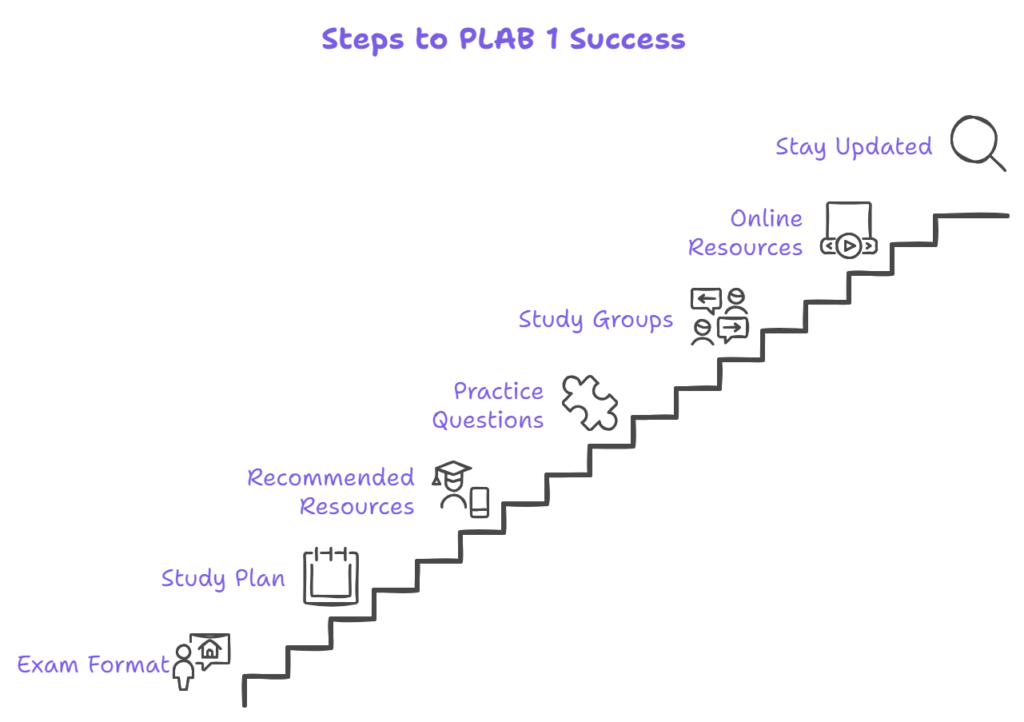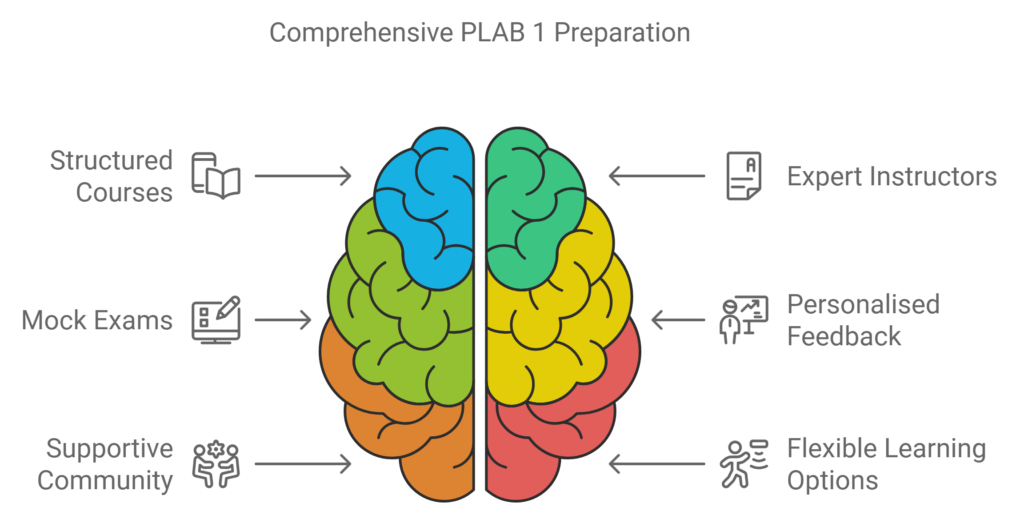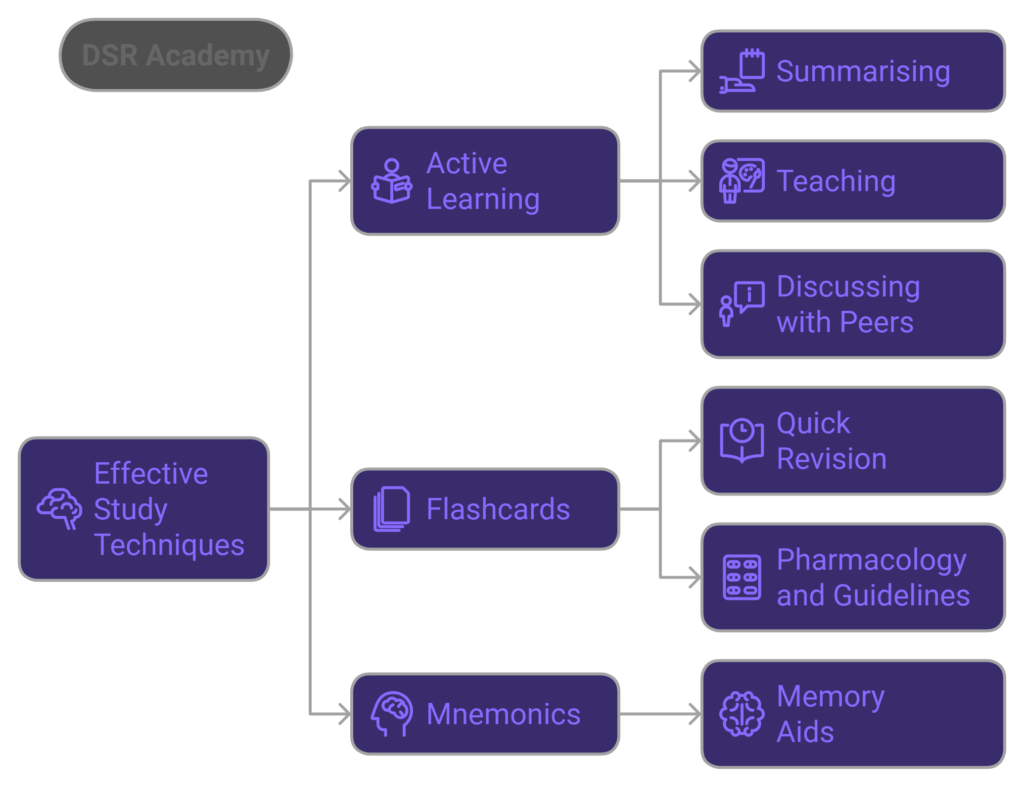Ultimate Guide to Preparing for PLAB 1
Tips, Resources, and How DSR Academy Can Help
Preparing for the PLAB (Professional and Linguistic Assessments Board) Part 1 exam can be a challenging yet rewarding journey for international medical graduates looking to practise in the UK. As a UK-based doctor who has successfully navigated this process, I’d like to share some comprehensive tips and resources to help you excel in your preparation.
Understanding PLAB 1
PLAB 1 is a multiple-choice question (MCQ) exam that assesses your understanding of the medical knowledge required to practise safely in the UK. It comprises 180 questions and is designed to evaluate your ability to apply medical knowledge in a clinical context.
Key Preparation Tips

- Familiarise Yourself with the Exam Format
- Understand the structure of PLAB 1: 180 MCQs with a mix of single-best answer questions.
- Review the exam syllabus provided by the GMC (General Medical Council) to understand the topics covered.
- Create a Study Plan
- Develop a structured study schedule that spans several months, allowing ample time to cover all topics.
- Break your study sessions into manageable chunks, focusing on different specialties each week.
- Use Recommended Books and Resources
- Key Textbooks: Consider resources like “PLABABLE” and “Kumar & Clark’s Clinical Medicine” for foundational knowledge.
- Question Banks: Utilise question banks such as “U-World” or “Passmedicine” to practise MCQs relevant to PLAB 1.
- Practice, Practice, Practice
- Take as many practice questions as possible. This will help you become familiar with the exam style and timing.
- Simulate exam conditions by timing yourself and completing full mock exams.
- Join Study Groups
- Engage with fellow PLAB candidates through online forums or local study groups. Sharing knowledge and discussing challenging topics can be incredibly beneficial.
- Use Online Resources
- Websites like the GMC provide free resources and guidelines. Use platforms like YouTube for video lectures on specific topics or exam tips.
- Stay Updated
- Keep abreast of any changes to the exam format or content by regularly checking the GMC website.
Effective Study Techniques
- Active Learning: Engage with the material actively by summarising, teaching, or discussing with peers.
- Flashcards: Create flashcards for quick revision of essential facts, especially for pharmacology and guidelines.
- Mnemonics: Develop memory aids to remember complex information more easily.
DSR Academy: Your Partner in PLAB 1 Preparation
One of the most effective ways to prepare for PLAB 1 is through DSR Academy, an established institution known for its comprehensive training programmes tailored specifically for international medical graduates. Here’s how DSR Academy can support your preparation:
- Structured Courses
- DSR Academy offers structured courses that cover the PLAB 1 syllabus in depth, ensuring you have a solid understanding of all necessary topics.
- Expert Instructors
- Learn from experienced instructors who have successfully cleared PLAB exams. They can provide insights, tips, and strategies that textbooks often don’t cover.
- Mock Exams
- Take full-length mock exams under exam conditions. DSR Academy’s mock tests mimic the real exam experience, helping you build confidence and assess your readiness.
- Personalised Feedback
- Receive personalised feedback on your performance in mock tests and assignments, allowing you to identify strengths and areas for improvement.
- Supportive Community
- Join a supportive community of fellow candidates. DSR Academy fosters collaboration and sharing of resources, making your study journey less isolating.
- Flexible Learning Options
- With both online and in-person classes, you can choose a learning style that suits your needs, making it easier to fit studying into your schedule.

Conclusion
Preparing for PLAB 1 is a significant step toward a successful medical career in the UK. Mocks are good way to test your knowledge.
By following a structured study plan, utilising effective resources, and considering the support offered by DSR Academy, you can enhance your chances of success. Remember, persistence and dedication are key, and with the right preparation, you’ll be well on your way to achieving your goal of practising medicine in the UK. Good luck!



Comments are closed